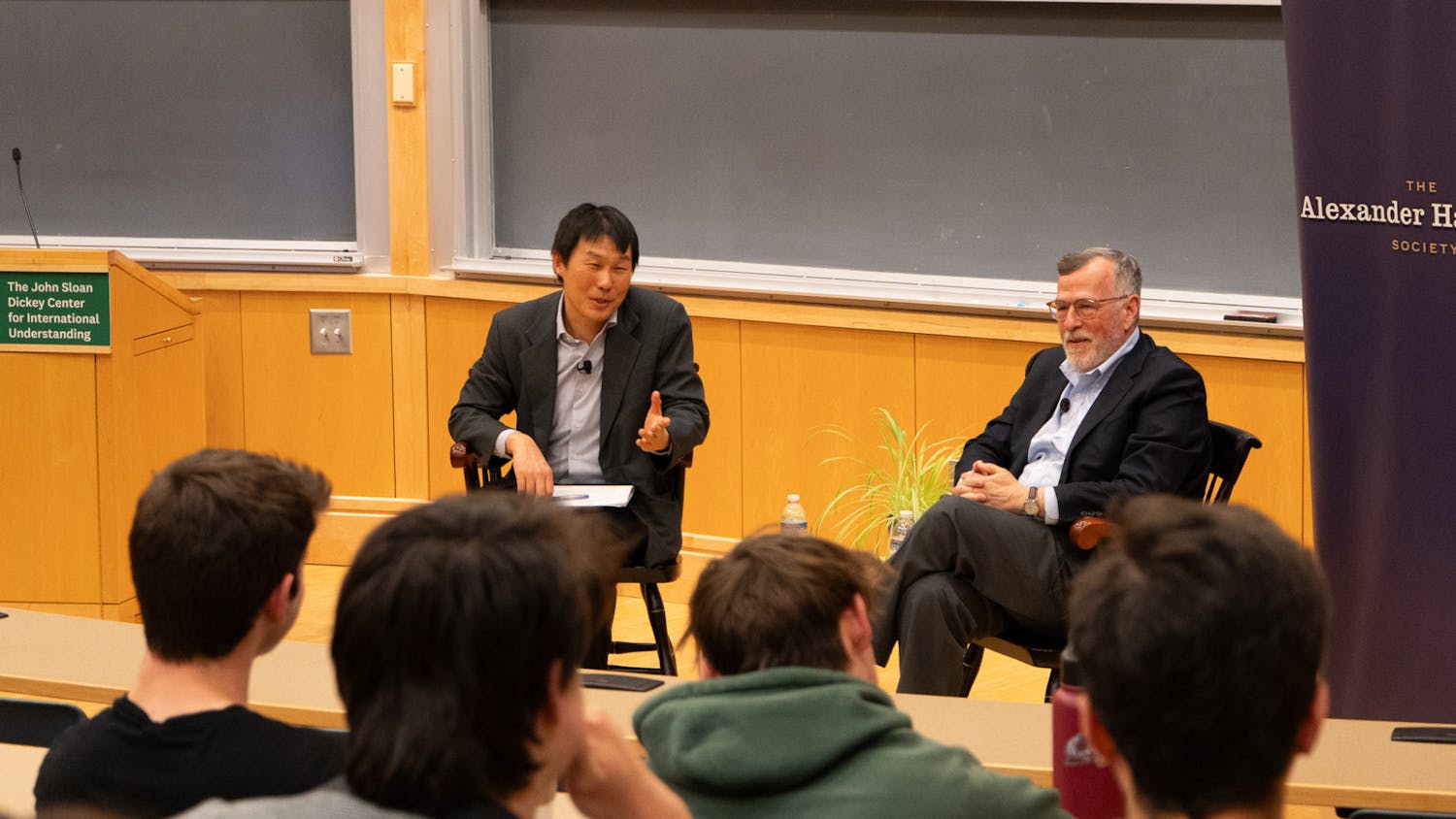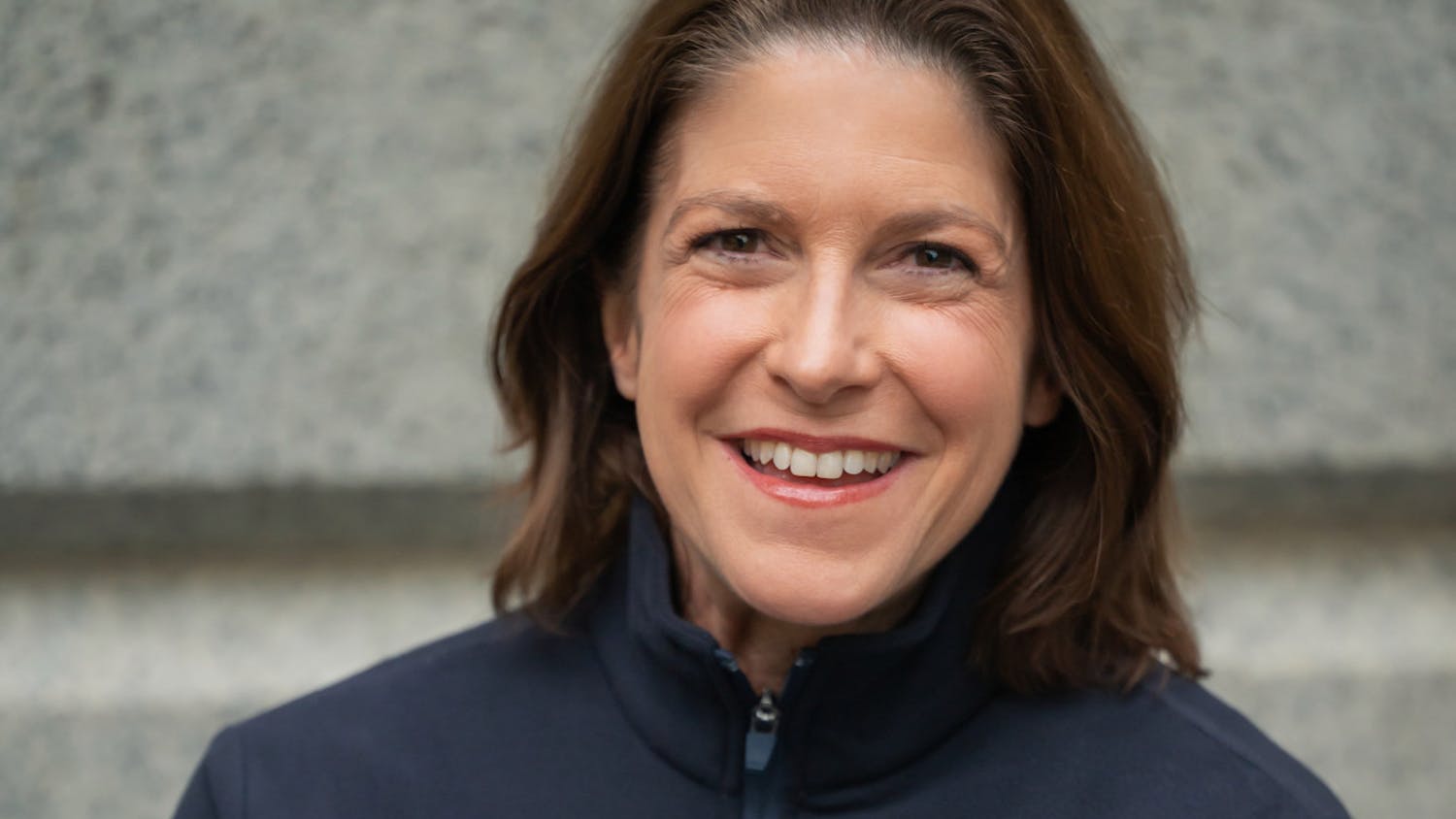Music and performing arts librarian Memory Apata, who has been working at the College for only three years, is already head of the Paddock Music Library in the Hopkins Center for the Arts. Apata, the first to attend college in her family, double majored in vocal performance and German at the University of Arkansas at Little Rock. She now works as a professional musician and performer and is also pursuing a Master of Arts in Liberal Studies at Dartmouth and a Master of Science in Library and Information Science at Simmons College.
How did your connection to music and performing arts lead you to this job?
MA: I found that being a singer transitioned well into the library world because you get to use these things that other musicians don’t have. Singers learn how to read and pronounce all different languages, and coupled with my curiosity in music history, I really worked well in this environment. I also love being on a college campus. There’s a certain kind of excitement that comes with not having experienced the world outside of school yet and that is really inspiring because possibility is fresh on everyone’s mind.
What is one of your goals for the Paddock Music Library?
MA: I’m really, really passionate about diversity and inclusion, so those things are at the center of everything that I do. I have a lot of conversations with folks about ways we can get the conversation about diversity and inclusion centered in our field, whether that’s talking about how we can get more people of color in programs, how to retain people in the profession studying the economic factors that might prevent someone from entering the field from a marginalized group, and also the cultural issues and barriers that someone might encounter. For instance, our library is very focused on classical music but not all music scholarship is focused on classical music. Dartmouth was actually a major leader in bringing popular music to the academy, and we therefore have a pretty diverse collection comparatively. The majority of questions that come to me from students are about popular music, and the majority of those questions have to do with race and appropriation and social justice.
What are you currently working on in the library?
MA: For the music library, January is a really exciting month because we have our annual outreach program called the sing-ins. Each year we teach the songs of the civil rights movement, like “We Shall Overcome” and “This Little Light of Mine.” This year we have a different theme, which is labor. We have really great conversations with the patrons who come — it’s a lot of community member and seniors that come. I feel like having this older generation present at these events is really important, because the students and young people that do come are able to show a new mind set on certain issues. Last week we had a really interesting discussion about “This Land is Your Land,” the Woody Guthrie song. We sung the lyrics first in English and then in Spanish, which is almost a direct translation, but in a new language it takes on a whole new meaning. We talked about what it could mean, what feelings it brought up. As soon as you take the lyrics and you have to say them yourself, it takes on meaning. Community members come because they want to sing, but also because they want to interact with Dartmouth students. It’s useful to have as many diverse opinions in the room as possible. We have this whole culture of not listening, so bringing this music into the library — which traditionally is a public space — allows community members to raise points in a low stakes way and learn from others.
What do you mostly do on a day-to-day basis?
MA: I manage this facility and I also manage the budget for music, drama and dance materials, so I make purchases that align with those departments’ missions and curricula. I study syllabi for each course and I talk a lot with faculty about their own research to make sure they have the materials they need. I also talk with students to see what they’re working on. I observe classes because I think it’s really important to know how the faculty are teaching in order to elect materials that will align with assignments that they’re going to be making. I really do a lot of environmental scanning.
Can you tell me a bit about your work with students?
MA: I work with students in two capacities: one is as a consultant and one is as a partner. I meet with people and help them find sources for projects. Those are pretty frequent but they’re not as meaningful as when we’re working on a project together. For instance, with the sing-ins, I’m working with Amy Zhang ’20 this year and she’s helping me select the repertoire. She’s doing her own research about the repertoire and she’s helping me come up with those discussion questions that we pose to the group and that’s a really enriching experience for both of us, because on one hand I get to see where the students are coming from and I get to see kind of how you are thinking about these types of things. On the other hand, it’s also enriching on her end because she sees more closely what it is that I do, which can be really hard to explain to someone. Those are the interactions I love the most — when we’re really partners and become a community of workers in that way.
What does your balance between school and work look like?
MA: What balance? I put a lot of pressure on myself to get done with my degree quickly, because I’m a motivated and ambitious person, but I think that was really detrimental to my health and my development as a professional. This upcoming term I’m making the decision to back off, because I went through some really tough mental health struggles in the past six months. I had a double whammy of pressure from work and pressure from school as I entered graduate school and a field I had very little experience in. The things that have helped me the most in getting back on track have been, one, to admit that I’m burnt out. I found that you need to eliminate unnecessary activity, learn to say no, which is very difficult at the beginning of your career, and finally, take care of your body. I have found a helpful yoga and mindfulness routine. And I hula hoop!
What do you wish the community knew about the study of music?
MA: The study of music isn’t all about writing a paper. The study of any subject — and especially in the performing arts research — can mean so many different things. It can mean studying for a role, figuring out who that person is, when they lived and what the people who lived in that time had as a worldview. Figuring out a specific bowing or fingering, building a set, sewing a costume. That’s music research and we as librarians are rearing to help with those questions.
This interview has been edited and condensed for clarity and length.



